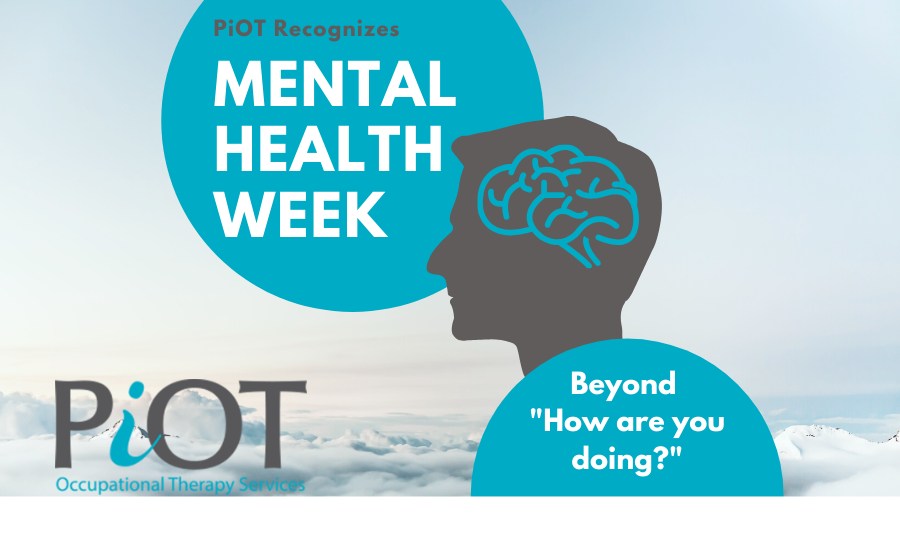
08 May Mental Health Awareness Week – Beyond “How are you doing?”
Mental Health Awareness week runs from May 4-10, 2020. With the current COVID-19 situation, it is particularly significant to be sensitive to the mental health needs of our clients. The isolation that clients may suddenly find themselves in can be frightening for them. They may be experiencing withdrawal of supportive services (OT, PSW, RSW, physio, etc.) or find that relatives and friends are no longer able to come for social visits. Their daily routines may have drastically changed. Some are communicating on virtual platforms for the first time.
In a recent article in Inc. Magazine, the need for connection with our clients during these emotionally exhausting times was explored. (See full article @ https://www.inc.com/jeff-haden/10-much-better-questions-to-ask-than-how-are-you-doing.html?icid=landermore). Although the questions seem to be geared towards clients who are working or will be returning to work, they can easily be tweaked to accommodate the specific situation of your client.
Finding those points of connection isn’t easy, though, especially if you ask a rote question like, “How are you doing?” Making people feel listened to, cared about, and valued is almost impossible when the questions you ask imply a common answer.
So let’s fix that. Instead of putting on your best sincere face and asking, “How are you doing (in these difficult times)?” the next time you start a call or chat, try one of these:
- “What is one thing about working from home that was easier than you thought it would be?”
- “What about your job has been hardest to pull off from home?”
- “What have you decided you’ll do differently when things go back to ‘normal’?”
- “What is something you’re surprised you haven’t missed?”
- “What new habit have you developed?”
- “What habit did you have to change?”
- “What do you know now about isolation/distancing/working from home that you wished you had known in the beginning?”
- “What do you do when you start to feel down?”
- “What part of your job that has changed do you miss the most?”
- “What is the first thing you’ll do when you’re finally able?”
But don’t be tempted to chime in with your own answer to the question. Keep the focus on the other person and ask a follow-up question or two.
And keep the questions short. Ask why. Or when. Or who or how or what.
People love to be encouraged to go on. Asking questions rather than interjecting your own experiences says, “That’s interesting. You’re interesting.”
And it proves you not only listened but also care.
Both of which form the basis of every good relationship.

